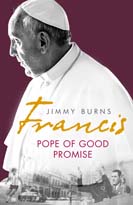Some debate in Catalonia was generated earlier this month by the fact that FC Barcelona president Sandro Rosell decided to attend the march of La Diada in a personal and not institutional capacity so as not to throw the club onto the independence bandwagon- a cause which opinion polls show just under fifty per cent of voters in Catalonia do not support. I think Rosell was right, as was his decision that the team next season should have the Catalan colours as their third preference strip, not their first. It shows pragmatism, if not necessary cautioun in a somewhat volatile atmosphere.
Persecution personified by the execution by Franco forces of Barca president Josep Sunyol is written into the mythology of Barca’s history, as is a certain identification with democracy and the common good. The punchy and highly marketable slogan ‘Mes que un club’ (more than just a (football) club) alludes not just to the club’s insertion in a Catalan society that is proud of its culture, but its ability to represent values that go beyond narrow partisan or nationalist interests.
Nationalist politics has given FC Barcelona its edge and arguably its passion at key moments such as when, after the death of Franco, the club supported the return from exile of Josep Tarradellas as President, not of an independent but an autonomous Catalonia under the rule of a constitutional Spanish monarchy.
The politics of Barca was inevitably bound to be sharpened by the current controversy surrounding Catalonia’s constitutional status. There is also a widespread respect, and justifiably so , for the club’s youth academy La Masia and the way it has nurtured some of the best talent in world football.
But Barca today is a global brand which also cuts across narrow political, cultural, and social interests in its organisation not just in terms of its fan base, but its players and sponsors. Its main financial lifeline are multinational- the Qatar Foundation , Nike, and the TV rights it shares with Real Madrid. La Masia is not a nationalist university- it is a training school for scouted talent where ethics of good conduct, tolerance, and team work are an indispensable part of the curriculum , not political or religious dogma. Some of Barca’s most active fan clubs are in Madrid and Andalucia where members have no wish to see Catalonia split from the rest of Spain.
If Barca has secured an unprecedented mass following worldwide it is not so much down to its politics as to its style and success as a team . Some of its best Catalan-born players-Pique, Xavi, Pujol- may wave the Catalan flag but they also enjoy being part of Del Bosque’s La Roja. Some of Barca’s best non-Catalan players- Messi, Iniesta, Pedro and Villa included- also seem happy enough with their current national status.
The logical outcome of Catalan independence is that FC Barcelona would find itself playing –as it did for a brief period leading up to and during the Spanish Civil War- in a Catalan as opposed to a Spanish league, and its Catalan born players would cease to play for La Roja and form a Catalan squad instead. Whether this would benefit either Barca or its players, let alone its fans, is an open question.


Well said, Jimmy (loved your Barca book, by the way). Hope all well.
Kind regards
Robin
100% de acuerdo contigo.
Un abrazo,
Alberto
Querido Jimmy,
Thanks for the thought and the sharing…tiempos interesantes. Sabes tu mucho mas que yo del Barça pero yo no estoy seguro de que, sea cual sea el futuro de la compleja relación entre Cataluña y España, la situación cambie mucho…
El Barça, con su nivel, su presupuesto y su plantilla debería jugar en una liga europea, como el Madrid y, de manera mas intermitente, algunos otros equipos…. Jugar contra el Granada (vease el partido de ayer, soso, espeso, aburrido) el Rayo o el Malaga, puede resultar muy interesante para los locales y para los clubs que pueden cobrar aquel día el doble en la taquilla, pero no aporta nada de nada deportivamente hablando….
Un fuerte abrazo
Gracias, Francesc- como veras, has influenciado la creacion de un ‘follow-up’ blog
Good article. Although Barca, is obviously a symbolism for Catalunya, the world wide appeal of Barca should ensure that the club does not become too embroiled in politics. My opinion is that Rossell, is trying somewhat to appeal to the pro-Laporta support within the Barca membership.